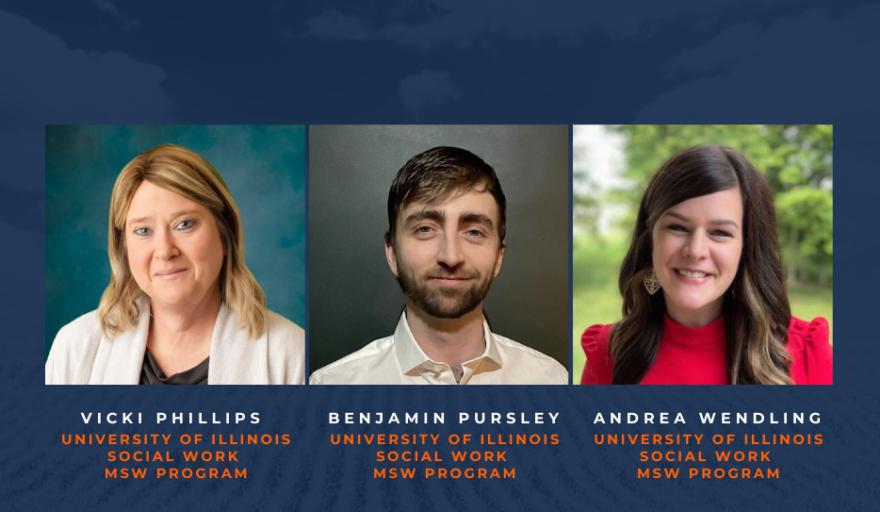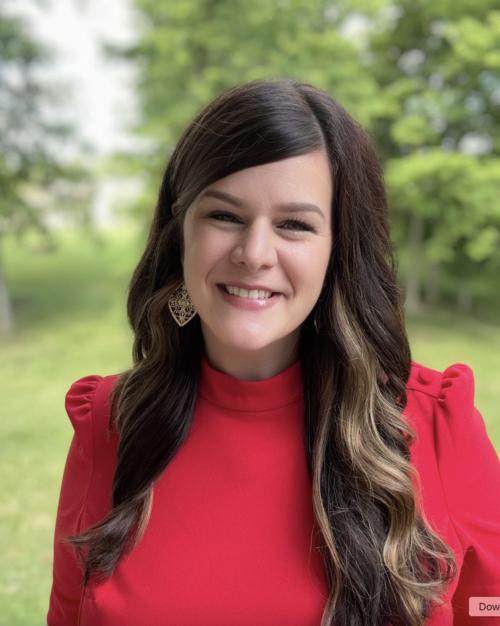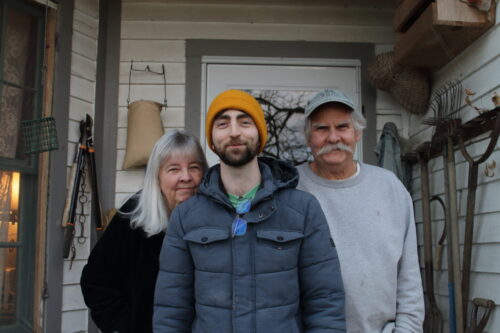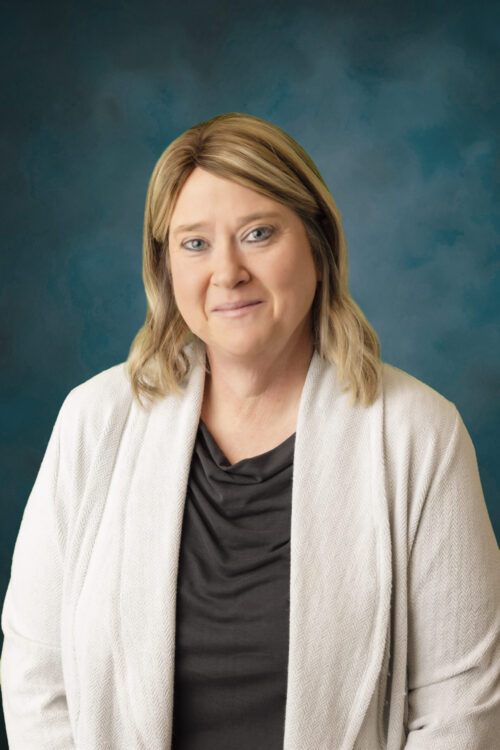Empowering Rural Communities: An Interview with IRHA’s Rural Behavioral Health Workforce Development Scholarship Recipients
February 21, 2025

Andrea Wendling, iMSW student

As a recipient of the IRHA Rural Behavioral Health Workforce Development Scholarship, which supports students addressing the critical shortage of behavioral health specialists in Illinois’ medically underserved rural areas, could you share more about the work or research you’re currently doing in this field?
I’m currently employed at a multidisciplinary private practice that provides collaborative outpatient and intensive therapeutic programs at each of our three locations in southern Illinois. Though we support clients of all ages and needs, a large portion of our clients are youth who are able to receive behavioral therapy, speech therapy, physical therapy, occupational therapy, mental health therapy and nutritional counseling, all under one roof. It’s been incredible to see the progress that each individual can make when we meet them where they are, understand their personalized goals and provide the supports needed for them to progress forward. I’m honored to have been selected for this scholarship to help support my education and the important work that we do each day.
What inspired you to pursue this specific area of social work?
Throughout my life experiences and previous career path, I’ve always been drawn to working with individuals in more intimate settings and developing a deeper understanding of their personal dynamics, challenges and aspirations. I felt drawn to make a full career shift into this field because I’ve seen firsthand the impact social workers make every day, and the high need for additional mental health and resource support in our small communities.
Looking ahead, what are your goals after completing your MSW?
After completing my MSW, I plan to continue working directly with clients providing mental health support and would like to pursue my LCSW in the future
What has your experience been like with our online iMSW program?
I’ve been incredibly grateful to be part of a program that allows me to further my education from home while continuing to work full-time and provide for our family. The support I’ve received throughout the program from instructors, staff and peers has made such an impact in helping me feel connected to the program and each other, even though we are fully online. As I’m nearing the end of the iMSW program, I truly appreciate all that I’ve learned, the social work community I’ve been welcomed into and the top-notch education I’ve received from the School of Social Work through this program! I have already recommended the iMSW program to several people and will continue to do so, because it’s been such a positive and rewarding experience for me.

Benjamin Pursley, MSW student

As a recipient of the IRHA Rural Behavioral Health Workforce Development Scholarship, which supports students addressing the critical shortage of behavioral health specialists in Illinois’ medically underserved rural areas, could you share more about the work or research you’re currently doing in this field?
I’m presently completing my master’s degree in social work at the University of Illinois. I feel generally as a culture we are having a crisis of meaning, and that socioeconomic stressors are exacerbating this issue. I am fascinated to see how AI transforms diagnoses in mental health – and how these technologies might be disruptive and generate collective crises for humanity. The question of how to fit our biological needs into our highly constructed environments is a central challenge for the everyday person; I am interested in how people access perennial sources of well-being in an increasingly fragmented and digital world.
What inspired you to pursue this specific area of social work?
I have always wanted to work in behavioral health. Change ultimately begins at the individual level, and the privilege of becoming a collaborator with someone navigating the massive complexity of life has the potential for endless novelty.
Looking ahead, what are your goals after completing your MSW?
I know I want to help people, as generic as that sounds. I have worked with the public aid office for about half a decade, and as important as I find the work to be – I hope to have fewer boilerplate interactions with the individuals I serve. One perennial goal is to work on myself while I work with others as they do the same thing.
I want to become certified as an LCSW and do clinical work. I am interested in new therapies incorporating ketamine – especially in the treatment of PTSD. While this is a frontier, I think these, and similar treatment modalities will increasingly be utilized in the mainstream in the next decade. Despite the legal liabilities and potential risks, I believe psychedelic-assisted therapy in a controlled setting holds tremendous promise in mental health treatment. Trauma has deep neurobiological correlates that are difficult to access and repair – I am interested in helping individuals contact and move through trauma to live higher agency lives.

Vicki Jean Phillips, MSW student

As a recipient of the IRHA Rural Behavioral Health Workforce Development Scholarship, which supports students addressing the critical shortage of behavioral health specialists in Illinois’ medically underserved rural areas, could you share more about the work or research you’re currently doing in this field?
I am currently working as a Child Welfare Specialist for Bethany Christian Services. As a Child Welfare Specialist, I receive the hotline referrals that are not opened as a DCFS investigation. I currently travel to Livingston, McLean, Dewitt, and part of Piatt counties. I meet families at their homes to review the hotline referral and offer preventative services with resources as well as supports. In many of the rural areas it has been difficult for families to find counseling for their children. There are long wait lists or if a family is able to find a counselor the child likes the provider leaves that agency a majority of the time.
What inspired you to pursue this specific area of social work?
I have worked with children for over 25 years in the mental health field and have dreamed of getting my master’s degree in order to offering counseling in my surrounding rural area. I want to provide a safe space for children to process emotions, develop coping skills, and address challenges they may be facing. By addressing mental health concerns early in childhood can prevent problems later in life, help them identify and manage their emotions, as well as help them be better equipped with expressing their thoughts and feelings.
Looking ahead, what are your goals after completing your MSW?
In May 2025, I will begin my internship with my current agency as an intern in our new Trauma Focused-Cognitive Behavioral Therapy (TF-CBT program). The program is a therapeutic intervention focused on helping children, adolescents, and their parents or caregivers to overcome the impact of traumatic events. This intervention involves supporting the child(ren), youth, and family members to manage behavioral triggers while promoting a safe home environment. The in-home sessions will cover a wide range of topics including education and parenting skills. My goal after graduation is to continue with my current agency as a counselor with the TF-CBT program. As I gain experience, I plan to start my own private practice for play therapy in the rural area where I currently live.
